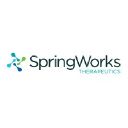Companies
Discover all trending biotech companies
Discover all trending biotech companies

Company Research Platform
Annual Revenue
$ 172,000,000
Global Employees
368
The Rare Oncology segment focuses on the development and commercialization of therapies for rare cancers and underserved patient populations. This includes research and development activities centered around small molecule inhibitors and combination therapies. Key technologies include gamma secretase inhibitors (GSI) and MEK inhibitors. The lead product, nirogacestat, is in Phase 3 clinical trials for desmoid tumors, aiming to improve progression-free survival and quality of life for patients with this rare and often debilitating condition. Mirdametinib is another key asset, being developed for neurofibromatosis type 1-associated plexiform neurofibromas (NF1-PN). The segment's market positioning is strengthened by strategic partnerships with companies like AbbVie and Pfizer, and the recent acquisition by Merck KGaA, Darmstadt, Germany. Future opportunities include expanding the application of existing therapies to other rare cancers and exploring new combination approaches. Regulatory and clinical aspects are critical, with a focus on obtaining FDA and EMA approvals. The segment's success is measured by the number of patients treated and the improvement in their outcomes.
This segment is dedicated to developing treatments for Neurofibromatosis Type 1 (NF1), a genetic disorder that can cause tumors to grow on nerves throughout the body. The primary focus is on mirdametinib, a MEK inhibitor, which has shown promise in clinical trials for treating NF1-associated plexiform neurofibromas (NF1-PN). Research and development efforts include Phase 2b clinical trials for mirdametinib monotherapy and Phase 1b/2 trials for combination therapies. The segment utilizes small molecule inhibitor technology to target the MEK pathway, which is often overactive in NF1-PN. The goal is to reduce tumor size, alleviate pain, and improve the overall quality of life for patients. Market positioning is enhanced by the FDA approval of GOMEKLI™ (mirdametinib) and collaborations with leading pharmaceutical companies. Future growth opportunities include expanding the use of mirdametinib to treat other NF1-related manifestations and exploring new combination therapies. Regulatory and clinical aspects are critical, with a focus on obtaining and maintaining FDA approvals. The segment's success is measured by the number of patients treated, the reduction in tumor size, and the improvement in patient outcomes.